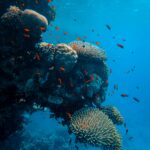
Plant a Coral. Did you know that you can adopt a coral and support its research?
Created by the University of the Algarve’s Marine Sciences Center, the Plant a Coral project aims to rescue specimens accidentally caught in fishing nets and
We didn't find any happenings mapped to your criteria.
Try the traditional search to find articles not yet mapped with RUA.
We didn't find any happenings mapped to your criteria.
Try the traditional search to find articles not yet mapped with RUA.
We didn't find any happenings mapped to your criteria.
Try the traditional search to find articles not yet mapped with RUA.
We didn't find any happenings mapped to your criteria.
Try the traditional search to find articles not yet mapped with RUA.
“Women of the Sea” is a project that explores the stories of more than 600 women who, driven by an emotional relationship with the sea, have decided to dedicate their lives to protecting the oceans.
As part of the 2030 Agenda’s “Decade of the Ocean”, the initiative focuses on Sustainable Development Goals 5 (promoting gender equality and empowering all women) and 14 (ocean conservation) through four strands: documentaries, communication campaigns, a four-part miniseries and a digital hub with all the women of the sea.
Peggada spoke to Raquel Clemente Martins, one of the people behind the project, to find out how they reached these women – who range from visual artists and sportspeople to researchers and marine biologists – and the impact that sharing their experiences can have.
I received an invitation to do another kind of production about women that didn’t go ahead and in the meantime we came up with the idea of, instead of looking for women who are experts on the sea, looking for women who have an emotional relationship with the sea.
We realized that this was something that wasn’t normally done and that we were more used to seeing female seafarers as having “men’s professions”. We wanted to get away from all these prejudices. We are interested in the emotional relationship that women have with the sea.
It’s always been a matter of word of mouth. Women have a natural ability to remember that friend who has done or is doing something interesting and feel compelled to share it.
However, as none of the three women who started this project had professional connections to the sea (only emotional ones), we were lucky enough to have a friend called Raquel Costa, a specialist in ocean literacy, who started spreading the word and telling us who we could talk to.
Normally, when we finish an interview, we always get two or three more new women recommended by one of these women of the sea. Now, for example, we’re doing an interview with an Italian woman I met in the Azores, who has already given us five more women of the sea in Italy. In the Azores, we were going to film 36 and we filmed around 56, once again thanks to word of mouth.
There is always a phone conversation first, and these women are recorded so that, as soon as possible, we can talk to them.
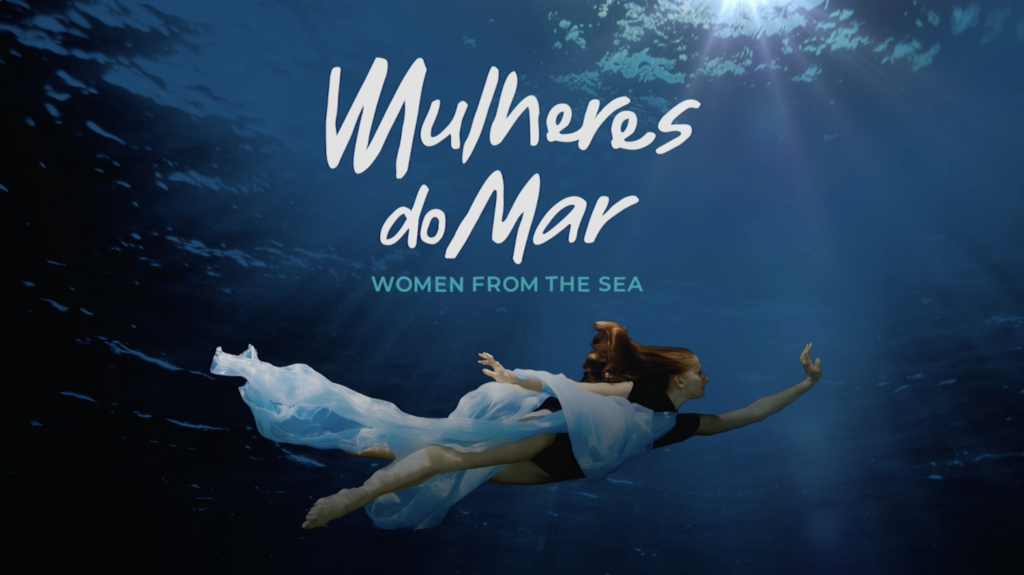
Some enjoy the sea, some are afraid of the sea, others have had traumatic situations with the sea. When we say “emotional relationship”, it can also be a less good relationship. They all have a great closeness to the sea, they need the sea in order to be complete, to be okay with themselves, even those who have had a negative relationship. That’s what separates them from everyone else.
They are not just people who like the sea, they are always carers. They are people who love the sea and therefore take care of it, individually or even professionally.
There are many women who really do have more of a relationship with water, with the river, the lake or the spring, but they are always very close to water.
We can list a number of impacts. I think that having a group of women, of which there are now more than 600, with a voice in favor of protecting the oceans is always relevant, whether at a social, community or political decision-making level.
It’s always important to listen to them because of their relationship with the sea, but also because many of them also specialize in a specific area of the sea.
They play an active role in protecting the ocean and can make an impact in this way. Beyond that, they foster a sense of community, reminding us we are not alone in this fight for such a significant part of our planet. Being part of a community provides emotional support and a space for sharing ideas, benefiting us on an individual level as well.
Essentially, the idea of bringing these women together to hear their voices stems from our belief that they serve as excellent examples. Examples inspire, act as catalysts, and generate change. I can’t predict the specific impact on any individual, as that feels irrelevant. What truly matters is the thought that someone will be touched by their stories, making a difference for the ocean. Listening to these women’s experiences is already worthwhile. You can feel the resonance each time we publish an interview or information; there’s always someone who responds with, “I’m a woman of the sea too, I’m doing it as well, and I want to belong.”
So that’s what we believe in: their voice. That they can mobilize people, not only those who are motivated, but also those who have never thought about it. We hear people say “it’s my home, I’m petrified because of what’s happening to the oceans”, “I’m worried about the impact of plastics or cleaning products”, without ever having thought that the sewage is going into the sea. Sometimes these are “clicks” from conversations we’ve recorded. We don’t know how, but they will touch someone – and they always do.
But the biggest goal of the project is to actually reach 2030 with a great legacy to leave for the next decade about the protection of the ocean and the way these women have protected it.
It mainly meant a push. We felt it was time to take the step. It happened at the same time as we received support to have a database with dedicated software (CRM) to manage all these names and identities that have already shared their experiences with us.
As we already had the “house in order”, we decided to take the leap to move towards a more global vision, and that was always the dream: that one day we would have women of the sea everywhere. We surpassed 500 in Portugal, then we got cold feet because we didn’t have the database, and now that we do, we’re moving forward.
We need to create a more solid structure at national level so that we can have a dedicated team working for all these women and countries that are joining – Spain, France, Italy, Lebanon, Sweden, Norway, Cape Verde and Canada. We don’t have more, not because we don’t want to, but because we have to go slowly so as not to leave them behind.
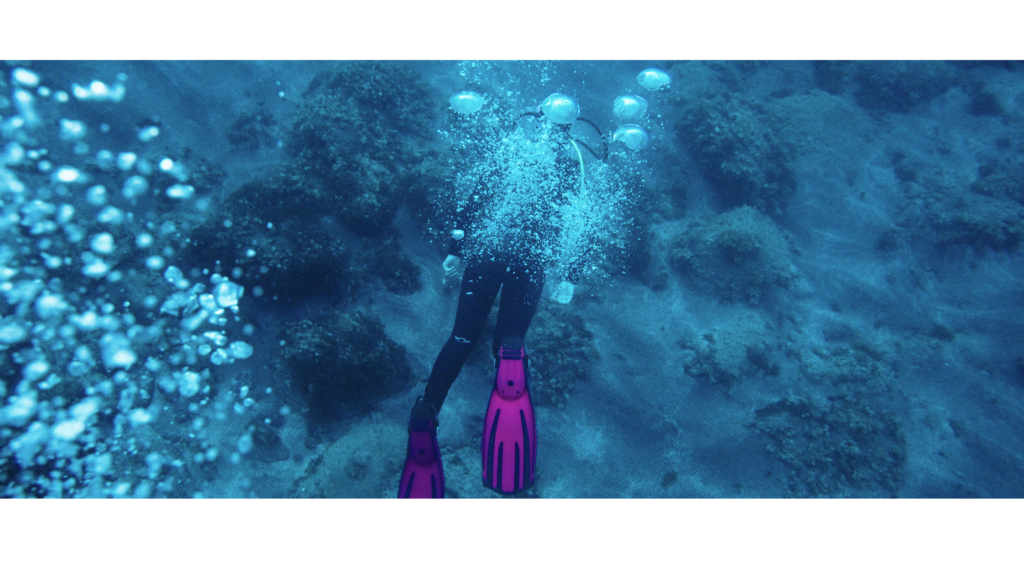
The documentary is being made with the support of the Government of the Azores, which will have its say on the premiere, but we are sure that it will then be available for everyone to see. If we can get it to air on other platforms, we’ll be happy to do so. However, we’ve already given a “taste” of the women we’ve interviewed.
I don’t know yet about the next documentaries [Portugal continental e internacional]. At the moment we’re finishing the one about the Azores and we’re open to invitations to film more women of the sea, wherever they are, but we really need financial support to be able to do it.
Our motto, which is very internal, has to do with the opportunities that arise. We are doing our work, bringing women together, collecting their testimonies and promoting what they are doing. With the resources we have, we are making the link between science and communication, showing in a very simple way the impact of climate change, overfishing and fast fashion, an area we are very interested in.
When we get funding that allows us to film, we’ll hear more stories.
At the moment, we’re open to meeting people who want to join us and who can help in some way. But above all, we want more women of the sea. It’s open to all ages, to people who identify themselves as women, because these people are usually carers by nature and our motto is “Those who love care, and those who care love”, that’s our way – to care for the ocean because we love it.
Internationally, we have already presented the project at a cultural event in Norway [Kulturnatt, in Fredrikstad], which invited us to take part. It was the first time we had officially presented it internationally, apart from at UNESCO. But we also need funding and partners to do what we call our expeditions, when we gather ten to 20 women of the sea and film them.
We need funding and local partners so that we can have a base team in Portugal that can guarantee the internationalization of the project and respond to these women. The women of the sea are all volunteers for the project, but we need support because our teams, such as the documentary production and backoffice teams, are all paid.
In terms of local partners, it would be very interesting to collaborate with local councils, for example, and we’ve already had a few that have shown interest. But their financial and local support is not enough. We need to find more partners to make these expeditions to different parts of the country.
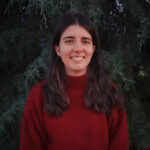

Created by the University of the Algarve’s Marine Sciences Center, the Plant a Coral project aims to rescue specimens accidentally caught in fishing nets and
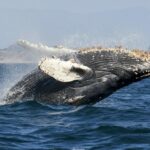
The sanctuary will conserve the resident population of more than 200 sperm whales living near the Caribbean island of Dominica and sequester carbon off the
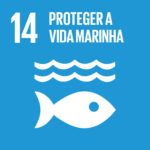
This article addresses an action that promotes the conservation and sustainable use of oceans, seas, and marine resources for sustainable development. This SDG aims to prevent and reduce marine pollution of all kinds, particularly from land-based activities.
 To discover businesses that are actively working to contribute to this Sustainable Development Goal, click here.
To discover businesses that are actively working to contribute to this Sustainable Development Goal, click here. To read news, interviews or tips related to this Goal, click here.
To read news, interviews or tips related to this Goal, click here.Esta publicação também está disponível em:
![]() Português (Portuguese (Portugal))
Português (Portuguese (Portugal))

